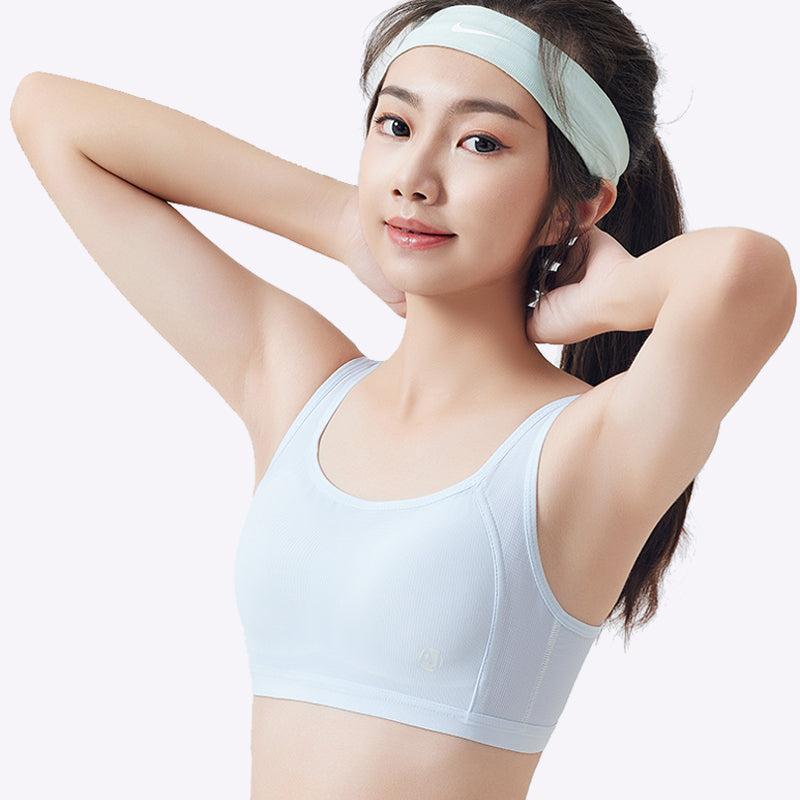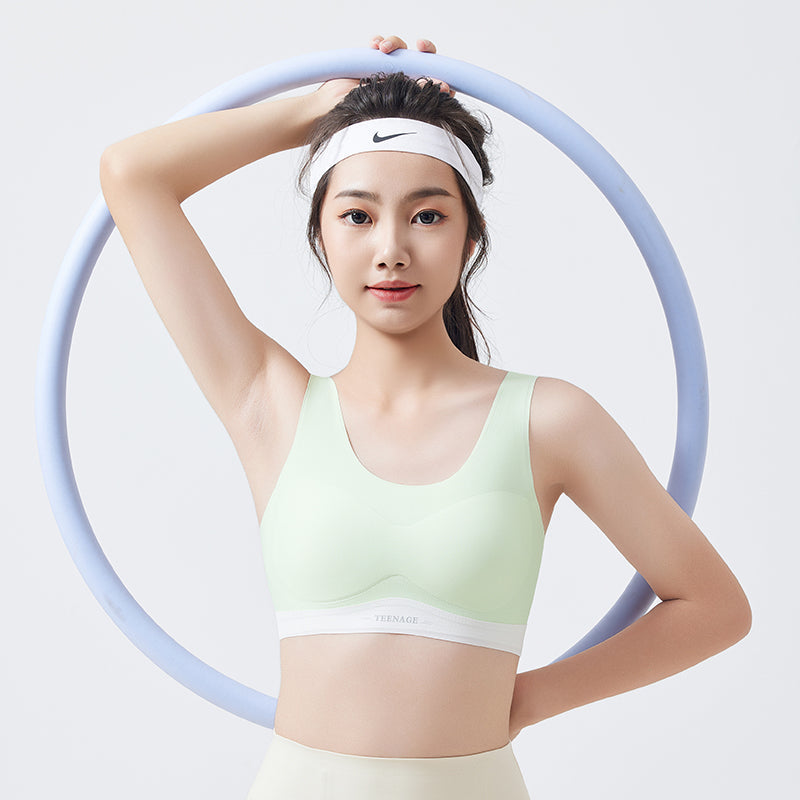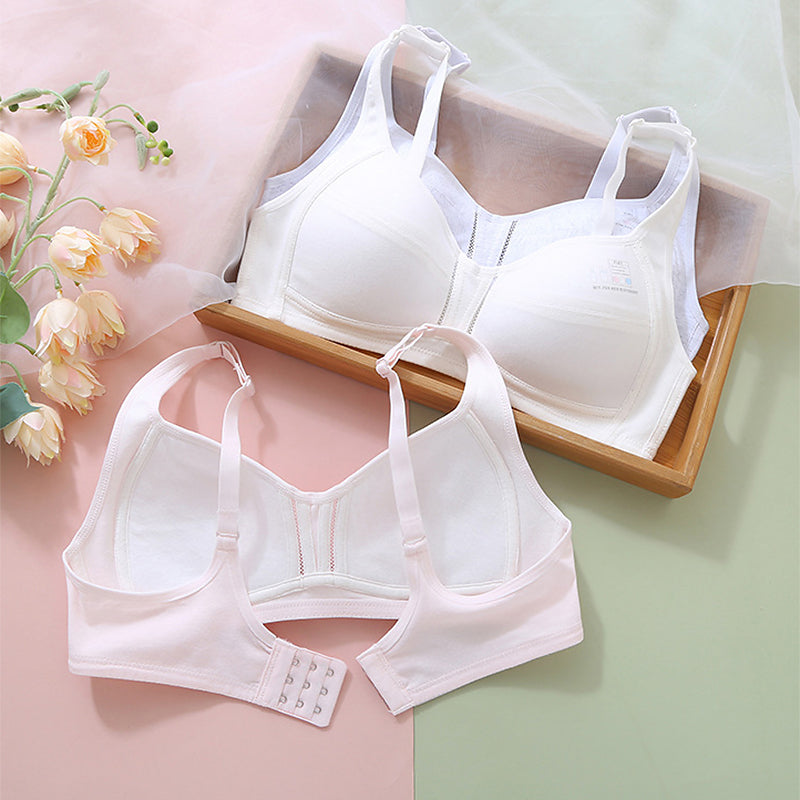Sustainability at Melissa: Comfort You Can Trust, Responsibility You Can See
At Melissa, sustainability is more than a tagline—it’s the way we design, source, make, and support every piece of underwear from childhood to womanhood. Our promise is simple: if it touches her skin every day, it should also respect the planet she’ll grow up in. That’s why our Sustainability report begins with a clear message: protecting her future means protecting her planet.
Below, we’ll walk you through how Melissa approaches sustainability across the entire lifecycle of a garment—from fiber choices and supplier standards to packaging, social responsibility, certifications, and the road ahead.
Why Sustainability Matters for Everyday Underwear:
Underwear is the most intimate layer. It touches the skin for long hours, it’s washed more frequently than other apparel, and it’s often worn by people with especially sensitive skin—including growing girls. If “sustainable fashion” is sometimes associated with occasional purchases, underwear is the opposite: it’s daily. That’s why our sustainability approach focuses on health, durability, and traceability. Healthy materials reduce risk for wearers. Durable construction reduces waste. Traceability and clear standards keep our ecosystem honest and improving.
Supply Chain: Responsible from the Start:
Material Sourcing
Our design philosophy begins at the fiber level. We prioritize skin-friendly fabrics—breathable cotton blends, antibacterial yarns, and seamless constructions chosen for comfort and lower impact. Whenever feasible, we source materials locally within China to reduce transport emissions and support regional economies. This is a practical way to shrink freight footprints while building long-term relationships with mills and trim suppliers we can visit and audit.
We don’t treat sustainability as a final-stage audit; it’s a selection criterion. Melissa carefully vets suppliers and favors partners operating low-waste production systems, working with OEKO-TEX® fabrics, and minimizing hazardous substances. By aligning with factories that share these principles, we maintain product quality while reducing ecological impact throughout the process.
Ethics are non-negotiable. We commit to fair wages, safe environments, and legal employment protections across our supplier base—and we avoid partnerships with factories that fall short of these expectations. This is about dignity for the people who make our products and reliability for the partners who sell them.
Product Design & Packaging: Built to Last, Made to Travel Light:
Durability & Quality
From girls aged 6 through adulthood, our underwear is engineered to retain shape and softness through repeat wear. When a garment lasts longer and feels good after many washes, you buy less often—and waste less often. This is our quiet stance against disposable fashion: make it once, make it right.
Minimal, Recyclable Packaging
We use recyclable, minimal-impact packaging—think kraft paper bags and low-ink cartons—and we consciously avoid plastic where possible. We’re also researching new eco-packaging formats, and we encourage customers to reuse or recycle what they receive from us. It’s incremental change that adds up across thousands of shipments.
Safer Chemistry & Antibacterial Technology
We favor non-toxic dyes and finishes that meet stringent health standards, and many products incorporate antibacterial properties—a practical benefit for high-rotation, close-to-skin garments. Safer chemistry isn’t a nice-to-have; it’s table stakes for daily essentials.
Social Responsibility: People First:
Ethical Labor, Audited Facilities
All Melissa Underwear products are made in China, in facilities we personally audit for safety, compliance, and fair treatment. From sewing floors to warehouses, our teams are trained, fairly compensated, and supported in secure, hygienic environments. Ethical labor is a foundation—not a footnote.
Female Empowerment
Melissa was founded to promote body autonomy and confidence. Our design lens centers women and girls at every life stage—puberty, pregnancy/postpartum, menopause—so that comfort and dignity are built into the product from day one. Internally and externally, we aim to reflect a “by women, for women” ethos.
Community Engagement
We’re engaged in body education initiatives, especially around adolescent health and hygiene, with an eye toward partnering with schools and women’s organizations to distribute education kits and donate undergarments to underserved communities across Asia.
Transparency & Certification: Trust, Verified:
Certification & Quality Assurance
We strive to work with suppliers who meet ISO, OEKO-TEX®, and BSCI expectations for quality, substance safety, and social compliance. These frameworks support traceability and accountability across the chain. Our internal team conducts periodic checks on product safety and quality control for every batch—because “sustainable” also has to mean safe, consistent, and wearable.
Sustainability only works if customers have clear information. That’s why we publish materials, functions, and care details on product pages and maintain open channels for questions. We’re also working on a Sustainability FAQ to help families care for underwear responsibly and extend garment life at home.
Continuous Improvement: The Road Ahead:
Sustainability isn’t a destination—it’s continuous improvement. We’re actively exploring:
- Recycled fiber integration to increase circular inputs without compromising comfort.
- Modular design approaches that simplify repair or disassembly.
-
Take-back programs to keep textiles in circulation longer and out of landfill.
These aren’t marketing lines; they’re workstreams we’re evaluating, piloting, and refining with partner feedback.
What This Means for Families, Retailers, and Schools:
- For families: You’re choosing underwear designed around skin friendliness, durability, and clear care guidance. That means fewer surprises out of the wash and more comfortable days at school, sports, and home.
- For retailers: Sustainability shows up in lower return risk (thanks to soft chemistry and consistent fit), leaner packaging, and reorder reliability built on vetted suppliers. It’s easier to sell what you trust.
- For schools & programs: Stage-based, comfort-first design simplifies assortments and drives good wear compliance; our ethics and safety standards make for better stakeholder conversations.
How You Can Participate: 5 Practical Habits that Multiply Impact:
- Wash cool, skip softeners, and air-dry when possible. You’ll extend elastic life, reduce micro-damage, and save energy.
- Follow care labels and our Care & Material guidance—small steps (like mesh laundry bags) reduce abrasion and extend softness.
- Choose stage-appropriate styles so garments perform as expected; comfort boosts longevity because pieces get worn and loved.
- Reuse or recycle packaging; kraft bags and low-ink cartons are easier to give a second life.
- Share feedback. Customer insights help us prioritize improvements—materials you love, packaging ideas that work better, or fit tweaks that extend wear.
- FAQ: Sustainability at Melissa
What makes Melissa “sustainable”?
A combination of responsible material sourcing, vetted suppliers, ethical labor, minimal packaging, and durable design—all documented on our Sustainability page and backed by internal QC and external standards (ISO, OEKO-TEX®, BSCI).
Are dyes and finishes safe for sensitive skin?
We use non-toxic dyes and finishes that meet strict health standards; many items also use antibacterial technology for freshness. Always check product pages for specifics.
Do you really audit your factories?
Yes. We personally audit facilities for safety, compliance, and fair treatment and avoid partnerships that don’t meet our standards.
What certifications should I look for?
OEKO-TEX® for tested-safe textiles; ISO and BSCI for quality and social responsibility baselines. We strive to work with suppliers aligned to these frameworks.
What’s next on your sustainability roadmap?
Recycled fibers, modular design, and take-back programs are in exploration stages—because we see sustainability as ongoing work, not a finished checklist.









